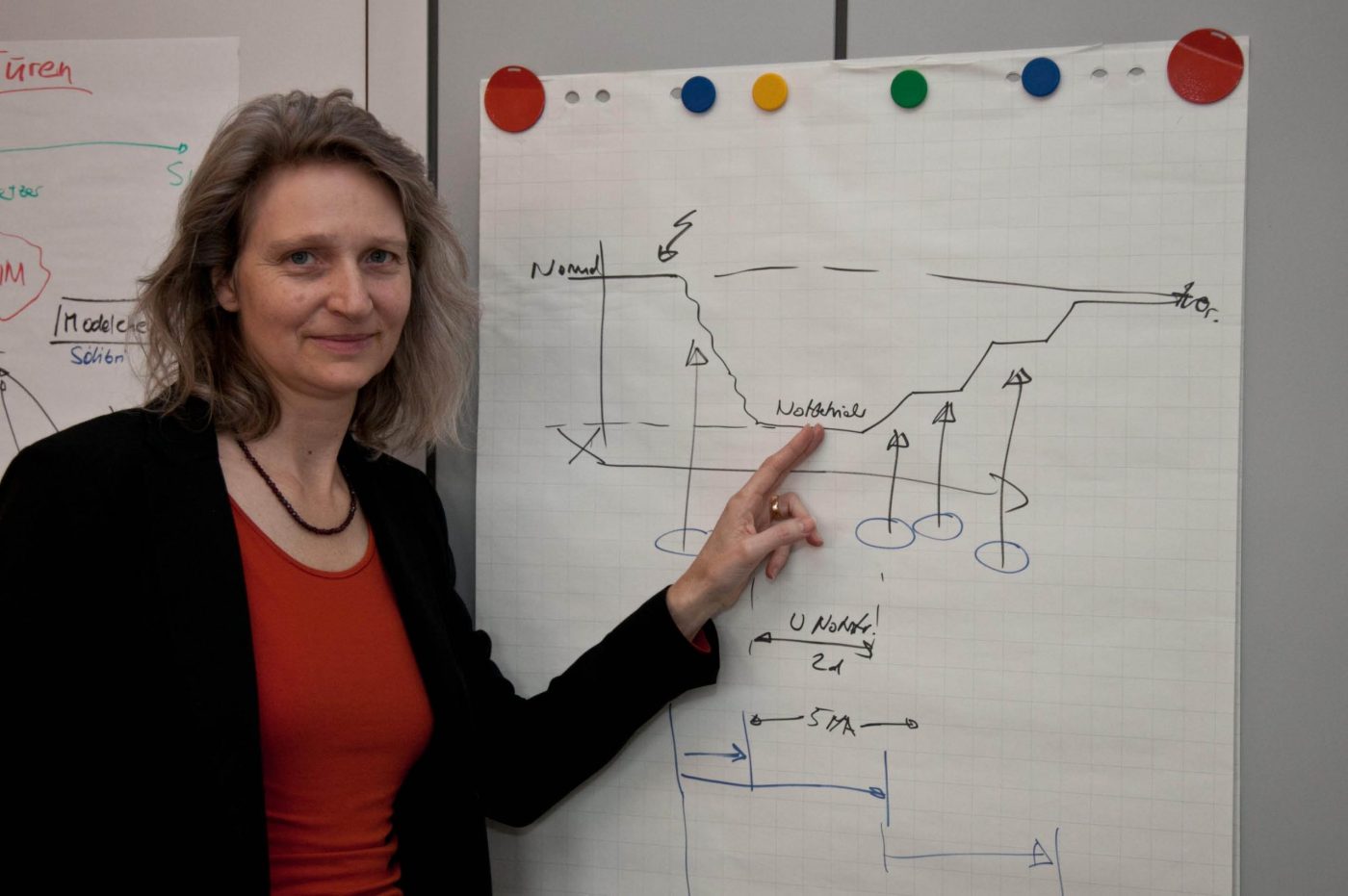"Team splitting was initially considered a dirty word".
The pandemic wave has led to many tasks being handled differently than before as a result of team splitting. But does this also create a new awareness? A crisis manager gives an assessment of what lessons individual companies have already learned from the crisis.

Ms. Eger, the first wave of the pandemic posed enormous challenges for companies worldwide. Since then, personnel resources have changed significantly in many companies. Was it possible to take advantage of a learning curve at all? There were practically no breathers.
Almut Eger, Emergency and Crisis Management, Management 4m2s: Yes, I've noticed a very steep learning curve in many companies: The initial lack of understanding of a completely new situation has in many cases developed into a good level of self-confidence in how one's own company can be managed. The processes are familiar, and the changed working conditions are well established. This does not mean that many people are not scratching the edge of overload or have exceeded it. The decision-makers and people involved in managing the extraordinary activities have done an incredible job, and I hope that everyone was able to use the 2020 holidays to recharge their batteries. Because this extraordinary situation will accompany us for a while and will continue to demand a lot from us ...
Has it now become clear who has implemented a functioning BCM and who has not?
Yes, that was very significant - in all industries and company sizes. The main thing here is to have a view of the really priority things, so that a company can get through even a long lean period. And that includes knowing how these priorities can be influenced, internally and externally. And questions arise: How, for example, is it recognized whether and why other issues are now priorities - different from what was previously thought? How can it be quickly recognized when external influences shift priorities - and should it be reacted to, yes or no? And if yes: how? A small but important everyday example of this is the newly very high proportion of digital communication: this type of communication requires much more time to understand and coordinate. At the beginning, this led to a lot of friction loss, "sand in the gears." Processes and workflows had to be changed to compensate for this loss of time.
When and for which industries were BCM strategies last revised?
All that was "eh da" before now had to be specifically organized. Those who were aware of this suffered much less friction losses. In all personnel-intensive companies, respectively in the "office jobs," there was very targeted reflection on the working conditions under which the most positive performance possible could be achieved. For example, it was recognized that home office depends not only on the workplace, but also on ICT accessibility, from bandwidth to compliant transmissions to data protection. Take digital signatures, for example: What infrastructure do I need to provide that signature? The whole document flow had to change as a result, and quickly. Because the lack of signatures has led to compliance problems in many places. What's more, something that previously took just a few minutes to do now takes many times that. For example, meetings during construction phases in project management suddenly required an incredible amount of additional coordination.
How have company processes in general changed in crisis management since the first lockdown? A year ago, you mentioned a required team splitting and a clear list of priorities.
Team splitting was considered a dirty word a year ago at the start of the pandemic. Today, it's a universally recognized code word for keeping up a performance. Staying at work, even when slightly ill, and doing things from home where possible, was equally a hotly contested issue. Today, this is once again a matter of course, as it was the years before.
To even entertain the thought that employees in quarantine can and "will" continue to work and that this is an advantage: this thought was still completely abstruse in March. However, most entrepreneurs have now realized this and have to resort to it. Many employees would rather go into quarantine and continue working more efficiently instead of staying in the office.
But you still had to learn how to deal with such processes. Has the home office now become so well established?
Home offices and video conferences cannot replace face-to-face collaboration in the long term. But they can be used in a targeted manner. One customer said, "This is like a long training camp - we now get it and can use it. Can we please stop the training now and get back to business as usual?" No, of course we can't. Because we are now living in the new agenda. That means: we now have to specifically incorporate the achievements of the last few months into the new ways of working and the new ways of supporting and supplying each other. In this respect, priorities have partly shifted, and partly simply supplemented each other. The current crisis requires a great deal of perseverance in a crisis management situation.
You can read the full interview in the print edition of SicherheitsForum from March 3, 2021.









